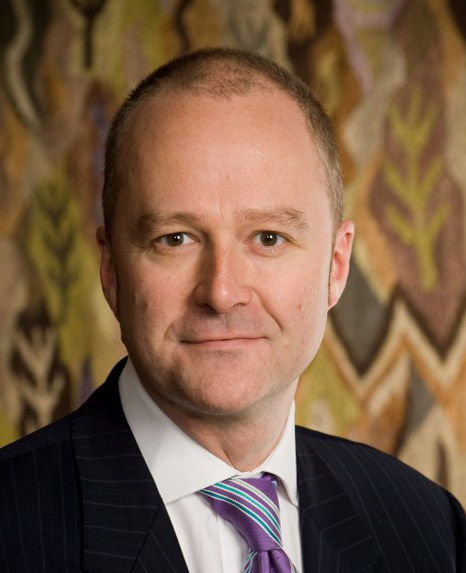While open science is gaining traction across the research system, funding practices are notoriously lagging behind. Royal Society Open Science’s 5000th accepted paper, suggests open applications and open funding decisions as the next frontier in open science.

Royal Society Open Science (RSOS) was launched in 2014 to provide an exciting new avenue for researchers across all scientific disciplines to publish their research. The journal has embraced a range of open science features including objective peer-review, transparent peer review, open data, replication studies and Registered Reports. In 2022 we accepted our 5000th journal article, ‘Research funders should be more transparent: a plea for open applications’, a Science Society and Policy article by Serge P. J. M. Horbach, Joeri Tijdink and Lex M. Bouter. We spoke to the authors to find out more.

How does it feel knowing that your paper is the 5000th the journal accepted for publication?
First of all, we are honoured that we are the 5000th paper in the journal. Second, we are thrilled that we see that our article reflects the values of RSOS and we hope we can contribute to the mutual goal to make research more open. Finally, we are aware that we are just very lucky to be number 5000. Therefore, we would like to emphasize the important role of luck in academic careers. That we are able to convey our message in this Q&A because of this luck, gives us the opportunity to spread our perspective on responsible funding practices in more detail and to a partly different audience. Let’s hope that this piece of fortune will help create some impact for the benefit of scholarly research.
What is the paper about?
Research funders increasingly mandate open science practices from the researchers and organisations they fund. However, the content of the applications, the research funding processes and funding decisions themselves remain opaque. In our article, we suggest two main ways in which funding agencies can contribute to open science. First, we call on them to make submitted grant applications publicly available, both those receiving funding and those eventually rejected. We believe that this will stimulate collaboration and re-use of rejected applications for building future applications. Second, we suggest funding agencies to be more transparent with respect to their own processes. We describe how this could potentially lead to more fair processes as well as opportunities for early career researchers to get insights into successful application writing. While we acknowledge that these suggestions might constitute major shifts in funding practices, we call on funders to experiment with them and add to the evidence base on best funding practices.
What was the motivation of the paper?
We noted that funding agencies increasingly demand open access publication, open data and open methods from the researchers they fund. While we applaud this development, we found it striking that funding agencies are not at all open about applications, review reports and details of the selection process. We wrote our paper because we believe that funding agencies should ‘practice what they preach’ and ought to commit to transparency and open science practices themselves. Furthermore, one of us serves in the objection committee of a major Dutch funding agency and noticed in appeal cases that review reports are sometimes severely biased, rude or sloppy. Recordings occasionally reveal selection interviews that are unfair, unbalanced or suffer from lack of expertise. We believe that transparency will help to address some of these issues and thereby improve the quality and fairness of selection processes. We are aware that transparency on its own will not magically change the entire system, but it’s an important and necessary first step.
What do you hope the paper will achieve?
We hope that adopting open applications will have several important effects. First, we deem it likely that open review and transparent selection will motivate reviewers and committee members to be more careful and avoid errors, bias, unfair judgement and sloppiness. Second, we expect that trust in funding processes will increase because the selection of grant proposals becomes more imitable. Third, we are convinced that transparency will show that the ability to make a reliable choice between eligible grant applications with similar scores is rather limited. We recently argued that in these instances lottery is a better decision tool. Fourth, open applications enables meta-research on funding allocation procedures and will stimulate re-use of good research ideas not yet funded.
Why did you choose Royal Society Open Science for the paper?
The Royal Society has an impressive tradition in scholarly publishing. In combination with the innovative, open science practices that the Royal Society Open Science engages in, it is an attractive venue. Obviously, we wanted our article on open science practices to be published in an open access journal. The journal’s large and diverse readership, the variety of article types it offers and particularly the transparent way of organising peer review, made us decide to submit our work to this outlet.
What attracted you to the ‘Science, Society and Policy’ section?
Obviously, our plea addresses topics that closely match the scope of this section of the journal. In fact, the Science, Society and Policy section was one of the journal’s features that made it attractive for our paper. Within the field of science studies or research on research, there are still few venues that manage to attract a wide, multidisciplinary audience of both researchers and practitioners (e.g. funders or editors), while also engaging in relevant open science practices.
What are your next steps in your research?
We are all three research integrity researchers (and advocates) and we are dedicated to improve research and foster responsible research in different on-going and future research projects. We also believe that through improving funding practices, we can foster change in academia because of the central and decisive role funders have in research assessment. Researchers will eventually follow the rules and regulations of funders, as they are dependent on funding. In the SOPs4RI project, we created a toolbox with tools to foster research integrity in funders and to urge funders to create their own research integrity promotion plan. In one of our future projects, TIER2, we aim to provide funders with more tools for fostering reproducibility practices. We cherish the hope that our endeavours will eventually contribute to more trustworthy and more valid research.
Interested in submitting an article to RSOS? Visit our website for further information.








